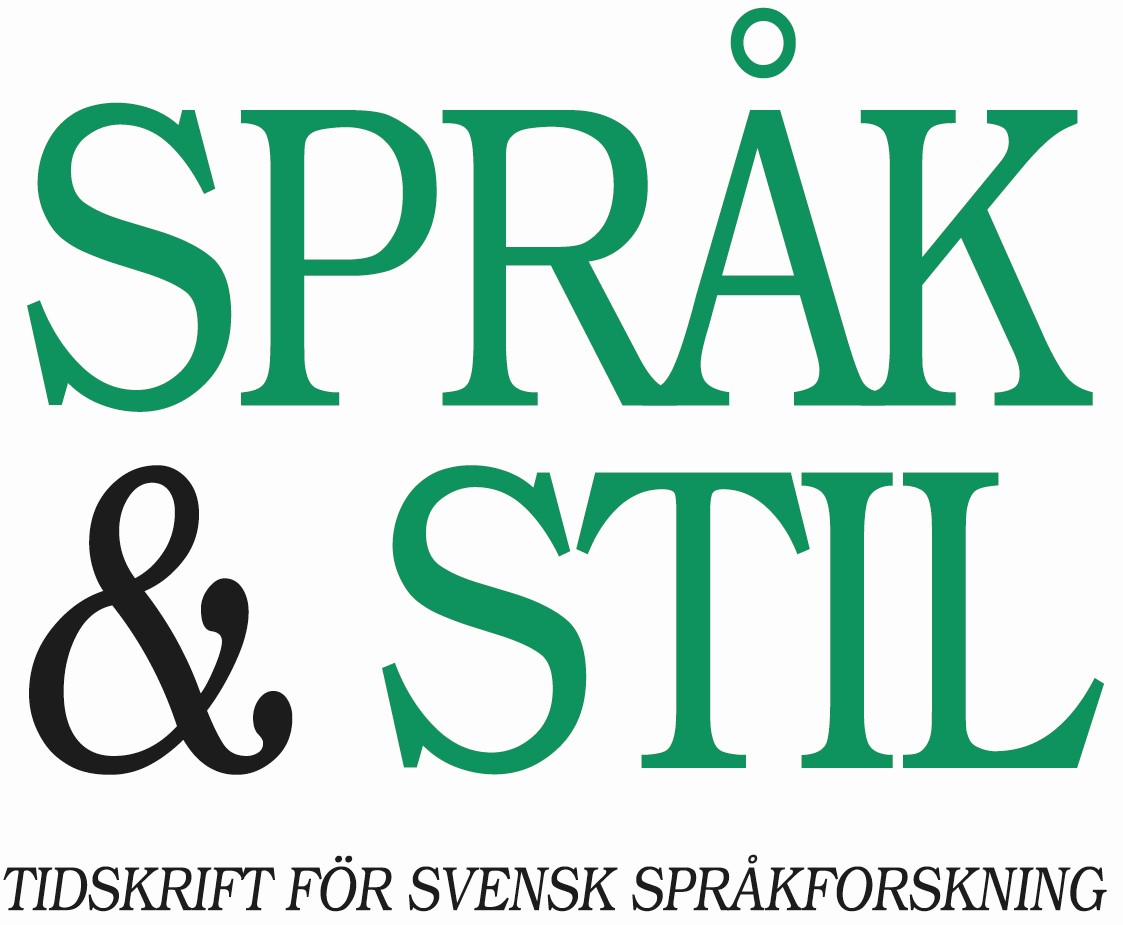Kolon: ett informationsstrukturerande skiljetecken
DOI:
https://doi.org/10.33063/diva-472203Nyckelord:
colon, punctuation, information structure, identificational focus, extraposition, right-dislocation, afterthought, SwedishAbstract
Katourgi, Alexander, alexander.katourgi@nordlund.lu.se, Ph.D. student, Centre for Languages and Literature, Lund University: “The colon: An information-structuring punctuation mark”. Språk och stil NF 31:2, 2021, pp. 134–159.
One of many relatively unexplored areas within punctuation studies is the relationship between punctuation and information structure, occasionally implied in style guides. This article presents an analysis of the topic–focus structure in Swedish sentences with colons. The study shows that the topic of the structure reliably precedes the colon, while the focus follows. Typically, one of these is a constituent of a full clause, while the other is a seemingly dislocated phrase. When the focus is dislocated, it generally serves to specify an element in the preceding clause, establishing a predicative relation to this overt or covert antecedent. When the topic is dislocated, it generally serves to characterize the subsequent clause or clause complex. Furthermore, the colon can connect clauses, seemingly allowing the omission of the focal constituent of the first clause, or the topical constituent of the second, when these are coreferential and the omitted constituent is informationally redundant. Inversely, a phrase demarcated by the colon can generally be expanded into a clause, repeating or referencing constituents of the adjacent overt clause or—if the colon demarcates two phrases—of a copula clause. This means that the colon, as a rule, marks a linear thematic progression, obviating the need to express this progression lexically, and suggests that all colon structures are underlyingly the same, mirroring the generative analysis of dislocation as elliptical parallel coordination.
Downloads
Publicerad
Nummer
Sektion
Licens
Copyright (c) 2022 Författaren

Det här verket är licensierat under en Creative Commons Erkännande 4.0 Internationell-licens.
Författare som bidrar till Språk & stil har givit sitt medgivande att publicera sina artiklar under en Creative Commons-licens (Creative Commons CC-BY 4.0), vilket ger tredje part rätt att kopiera och återdistribuera materialet i vilket medium eller format som helst. Det ger också tredje part rätt att bearbeta, förändra och vidareutveckla materialet för vilket syfte som helst, inklusive kommersiellt, på villkor att tydligt erkännande ges till verkets upphovsperson, att en länk till licensen tillhandahålls och att det tydliggörs om ändringar av verket har gjorts. Detta ska göras på skäligt vis, och får ej förespegla att licensgivaren godkänner tredje part eller vederbörandes användning av verket. Författaren/författarna behåller copyright till verket.


